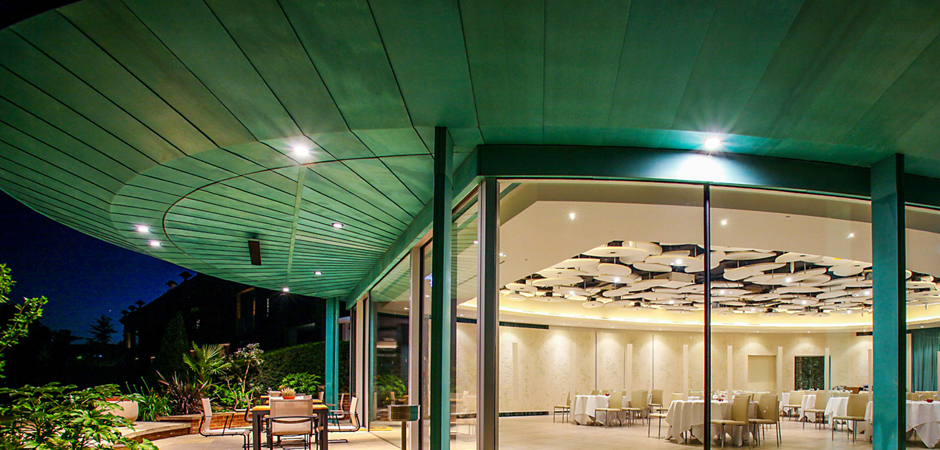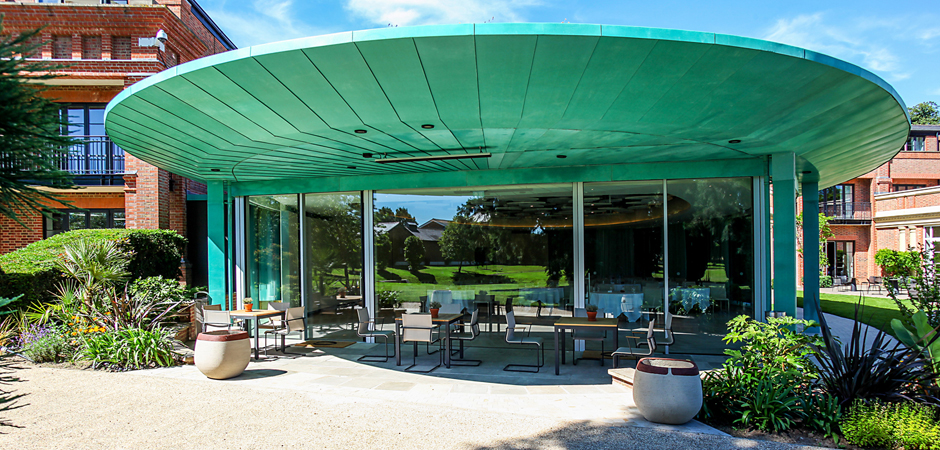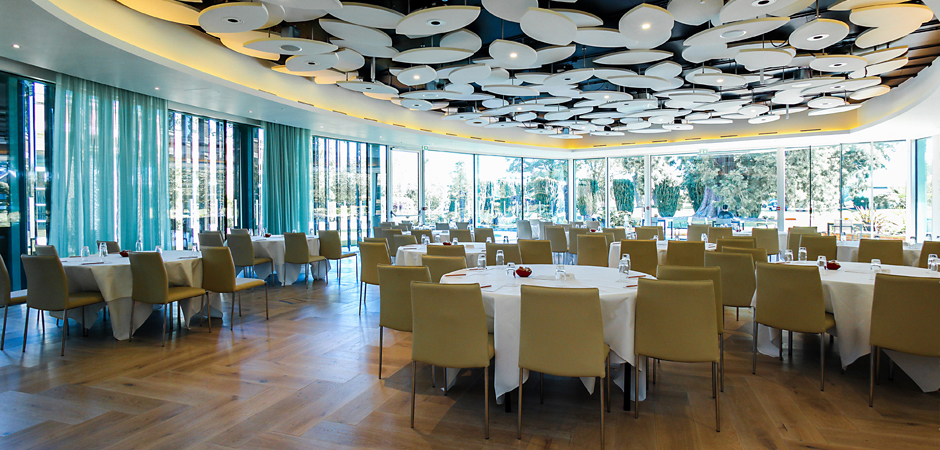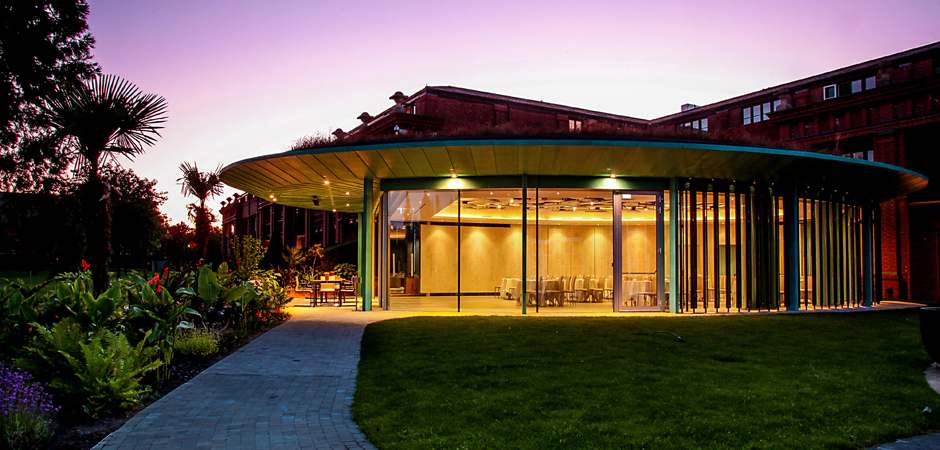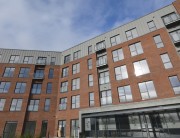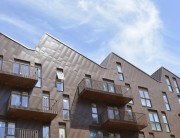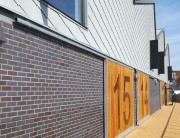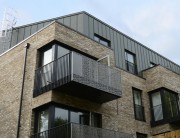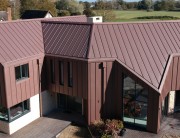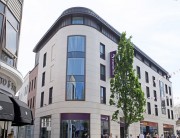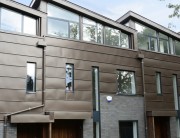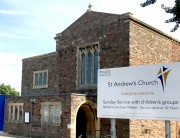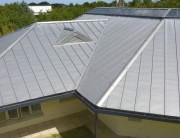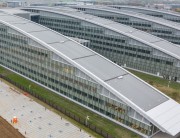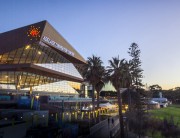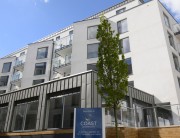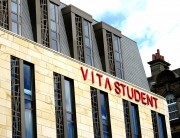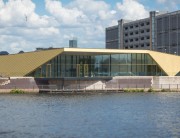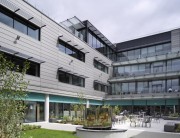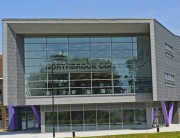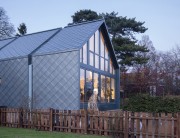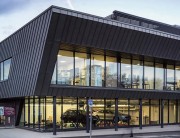The Grove Hotel – it’s got to be green
Project: Cedar Suite, The Grove Hotel, Hertfordshire
Client: Ralph Trustees
Architect: James Blake at Purcell
Designer: Martin Hulbert Design
Structural Engineers: AECOM
Main Contractors: Galliford Try
Copper Contractor: CEL Ltd
Copper: KME Tecu Patina
It wasn’t always as placid at The Grove as it is now. The former country estate of the Earls of Clarendon near Abbot’s Langley in Hertfordshire, the 18th century mansion house was called in by Secretary of State John Prescott in 1997 in a landmark green belt test case, when new owners the Ralph Trustees were trying to convert it into a luxury hotel. They eventually won the two-year legal battle and architect Jeremy Blake, now at Purcell, was involved from the outset. He is handling the current programme of increased facilities and improvements at The Grove.
As part of the hotel’s ongoing development the client decided in 2014 to create the Cedar Suite, an oval copper-clad structure that would act as a stand-alone wedding and events space for the hotel with its own unique quality and relationship to the garden. Influenced in part by the fact that interior designer Martin Hulbert’s Bermondsey office overlooked a church copper roof, the design team decided early on to go for either copper or verdigris sheeting, becoming rapidly aware that with reduced sulphur dioxide levels in the air, real copper was unlikely to patinate. ‘It was always going to be green so we looked at alternatives,’ recalls Purcell’s Kags Alexander-Cahill, ‘But copper never left the table and finally we opted for verdigris copper sheet.’ The chosen product is KME Tecu Patina supplied by SIG Zinc & Copper.
With engineer Michael Wright of AECOM, the firm developed the idea of a simple Borromini ellipse to form the oval plan of the new structure. ‘It looks complicated but it’s actually produced from only two arc radii,’ explains Alexander-Cahill. ‘This meant it was more straightforward to design, allowing us to produce easier to fabricate copper sheet templates and glazed sections.’
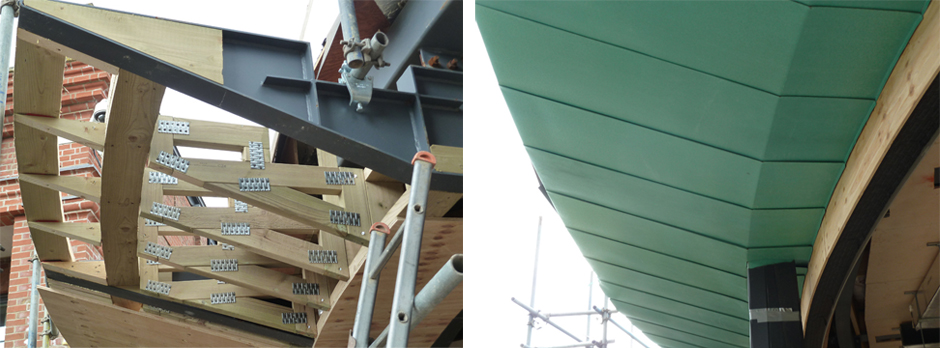 From this basic principle, the team developed a slim steel structure with a ring beam portal frame cantilevering out over a wide garden entrance area, with 58 secondary ‘fins’ helping to create a 6m overhanging canopy, clad in SIG’s copper sheeting. While the structure is thin, Alexander-Cahill states that,with 3m high full height glazing and doors beneath it, there was no room at all for deflection. That said, some compromises needed to be made as part of the design & build process. While the architect’s intent was to have the soffit meet the eaves at a point, advice from contractors Galliford Try and AECOM produced an equally elegant but simpler solution with a small, flat face returning back to the zinc substrate to the extensive green roof.
From this basic principle, the team developed a slim steel structure with a ring beam portal frame cantilevering out over a wide garden entrance area, with 58 secondary ‘fins’ helping to create a 6m overhanging canopy, clad in SIG’s copper sheeting. While the structure is thin, Alexander-Cahill states that,with 3m high full height glazing and doors beneath it, there was no room at all for deflection. That said, some compromises needed to be made as part of the design & build process. While the architect’s intent was to have the soffit meet the eaves at a point, advice from contractors Galliford Try and AECOM produced an equally elegant but simpler solution with a small, flat face returning back to the zinc substrate to the extensive green roof.
The copper contractor CEL Ltd collaborated on the design and was keen on having double folded overlaps at sheet interfaces to ensure there would be no billowing of the sheets in the event of high winds, but with the architects wanting to emphasise the delicacy of the detailing, they settled on single overlaps, which creates more discreet joints with copper drainpipes behind structural columns.
There was a real desire to ‘bring the outside in’ from the project’s inception, explains interior designer Martin Hulbert. This resulted in all internal columns and door carcasses in the space being covered in the same verdigris sheeting. While the single lap detail was used on the columns, for doors and wall detailing, sheets are glued and riveted to the substrate. Hulbert notes that copper’s inherent pliable quality meant it ran easily around edges and returns. The common material palette has pleased a demanding client, he says: ‘Even though the actual oval shape of the new space defined itself as distinct from the main building, we think we created a seamless relationship of interior to exterior.
Reproduced by kind permission of RIBA Journal
The Grove Hotel – it’s got to be green case study
More information




